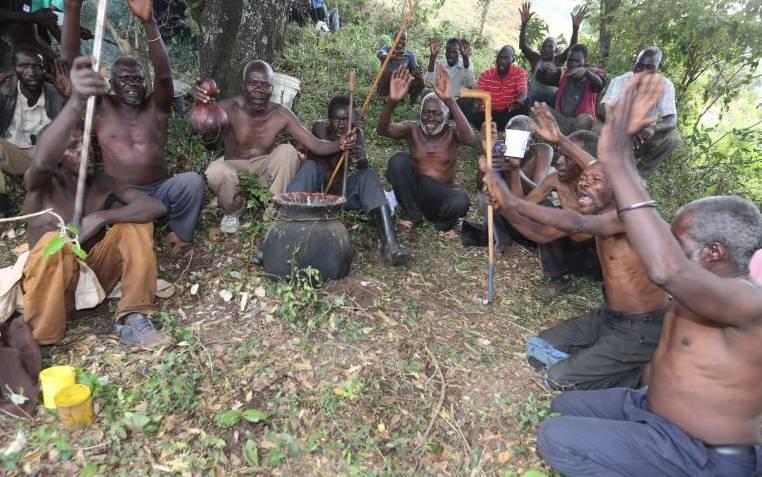×
The Standard e-Paper
Smart Minds Choose Us

Kapterik clan elders from Epkee location in Elgeyo Marakwet County practice traditional rituals to curse the deadly coronavirus. The elders, ranging from 80 years and above, claimed that the disease will never cause death to Kenyans and in the world in future. April 14, 2020. [Peter Ochieng'', Standard]
The clock struck midday as 80 grey-haired men gathered under four trees on the Keiyo hanging valley in Elgeyo Marakwet County.